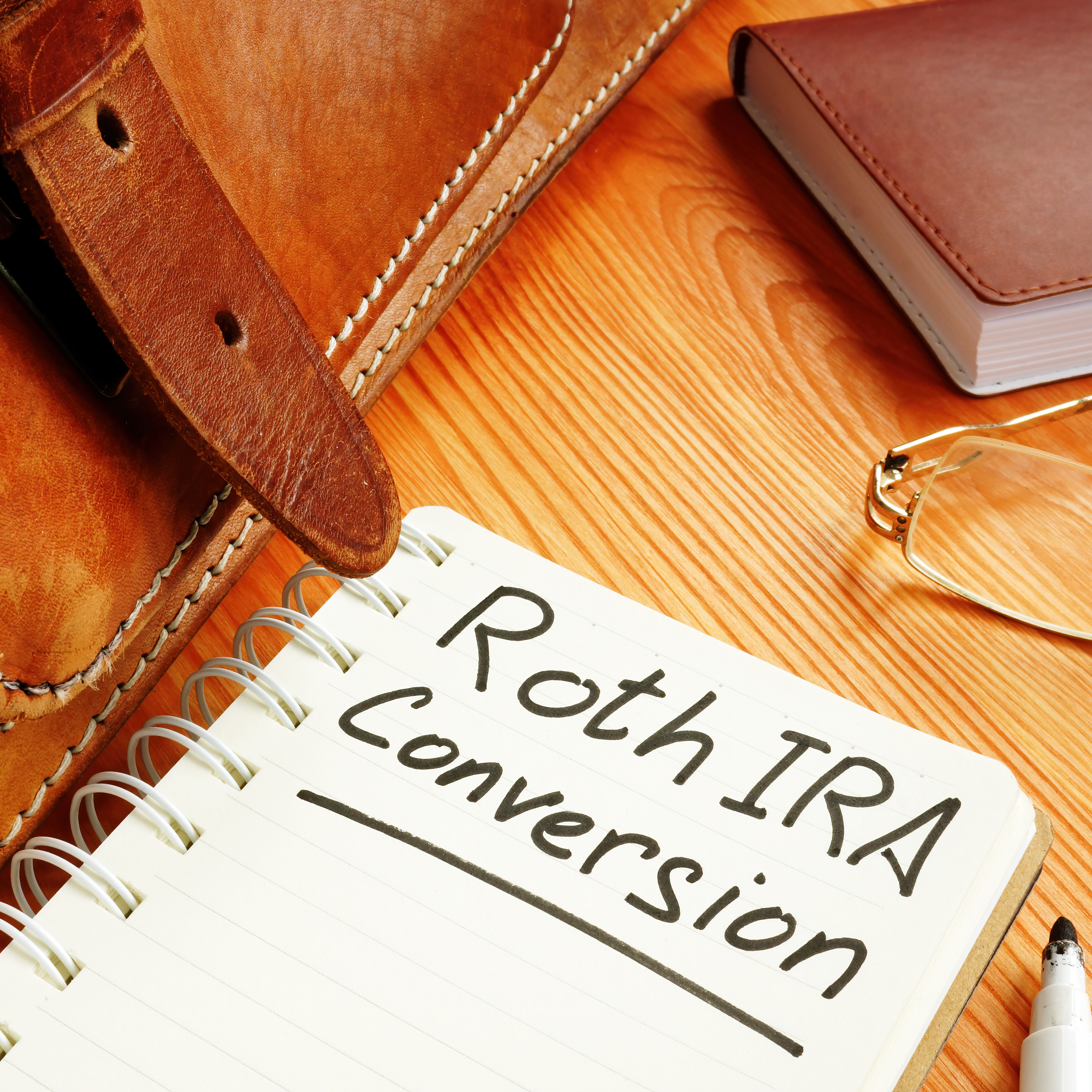Many of you have Traditional 401Ks, IRAs or Rollover IRAs from previous employers and wonder if they’ve missed the Roth IRA tax free growth boat! And maybe you’ve thought about a Roth IRA Conversion but the tax impact has you feeling uneasy and unsure about it being the right move for you.
I can understand that and you’re not alone – this is one of the most common retirement planning questions I get.
A Roth IRA Conversion is the process moving money from a pre-tax retirement account (like a Traditional IRA or 401K) into an after-tax retirement account, the Roth IRA. As a result, you will pay ordinary income tax on the conversion amount today in exchange for years of future tax free growth and withdrawals.
So when is the right time to consider a Roth IRA conversion? Here are a few scenarios where it may make sense:
You’re Young and in a Lower Tax Bracket
If you’re in your 20’s or 30’s and you have since left a company or two and are wondering what to do with your Traditional 401K(s) sitting around, A Roth conversion could be a smart move.
- Why? First, because in theory, your income is lower than it probably ever will be (depending on future circumstances). As a result, you’re likely in a lower tax bracket than it will be in future years.
So by converting now, you will lock in today’s lower tax rate and benefit from decades of tax free growth. The alternative, the funds stay in the Traditional vehicle you pay tax at potentially higher rates on your full distribution amount during retirement. - Second, you will be taking advantage of years and years of tax free growth. Paying the tax bill now may feel uncomfortable, but the compounding tax free growth in the future will likely outweigh the upfront tax cost today.
When the Market is Down
If you have been thinking about a Roth Conversion but the idea of the tax bill has been too overwhelming due to your account size, then consider a conversion when the market is down.
Timing matters. At this point your account has ultimately gone down in value (for the time being) so when you convert, your tax burden has also been reduced.
You then will reinvest those funds in the Roth IRA and benefit from the eventual market rebound inside the Roth IRA and all those gains and future growth will no longer be taxable to you.
When Your Income Drops
Sometimes life throws curveballs and our income takes an unexpected turn – a job change, sabbatical, or even taking time off for family can temporarily lower your income. It may not be top of mind for you during this time, but that’s when a Roth conversion can be especially valuable.
If your income dips considerably, your tax bracket has likely decreased as well and thus reducing your tax burden and increasing your tax savings as a result of the conversion. Especially if you anticipate higher income later on in life, taking advantage of the dip now will likely benefit you in future years.
You Are Nearing Retirement Without Needing The Funds
If you are in a position where you are nearing retirement and do not need the funds for your retirement at this time, then you may consider a Roth conversion in full or laddering the conversion over a period of time.
The benefits of the Roth IRA conversion at this stage of life is more focused around the flexibility it provides to you and the next generation:
- Traditional IRAs require RMDs (Required Minimum Distributions) at age 73, forcing you to take withdrawals whether you need the money or not.
- Roth IRAs do not — meaning you can let the money continue to grow tax free for as long as you like.
- Passing wealth: If you leave a Roth IRA to the next generation, they won’t owe taxes on withdrawals. Compare that to a Traditional IRA, which creates taxable income for your beneficiaries.
Keep in Mind That One of the Biggest Determining Factors….
One of the biggest factors in deciding whether to convert a Traditional 401K or IRA to a Roth is your ability—and willingness—to cover the tax bill. You may need to use some of your retirement assets to pay those taxes, which will lower the total amount converted.
While the scenarios above can help reduce the overall tax hit, they won’t eliminate it entirely. No matter when you choose to convert, be prepared for the tax cost.
The Long Term Case for Roth IRA Conversions
The reality is that one of us know what tax rates will look like 20 or 30 years from now. Converting to a Roth IRA today means choosing certainty and peace of mind , making and informed decisions with what you know to be true today and knowing your withdrawals will be tax free in retirement.
For many people, that trade off is worth it. I’m a firm believer in the long term benefits of tax free growth and withdrawals, although a Roth IRA conversion isn’t right for everyone, in the right circumstances, it can create massive long term savings and flexibility.
If you’re wondering if it’s the right move for you – take a look at my services to get personalized financial guidance and clarity on your next best step.
